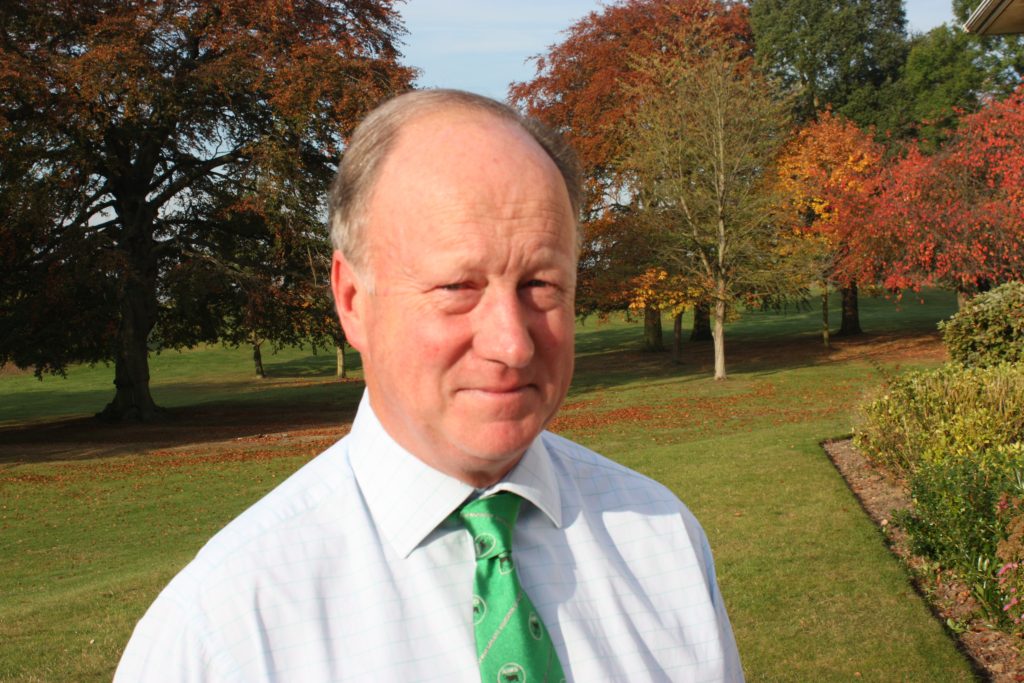Comment: Norman Bagley analyses the ‘Gove vision’
Norman Bagley, head of policy at the Association of Independent Meat Suppliers (AIMS), discusses Michael Gove’s recent speech from the Oxford Farming Conference.

Norman Bagley.
I remember well some respected farming friends before Gove’s appointment bewailing the fact that Defra needed a big hitter as Minister. Well they’ve got one now, that’s for sure.
Or have they? His speech has been hailed as visionary to the point that it has been assumed that all he said was new and sets out new intellectual thinking and a new direction for the
Country. Quite clearly, it isn’t!
To trace back how far Defra has had an aversion to commercial livestock production for yonks. I recall several separate pronouncements that shaped what has now become a supposed new vision.
1. Margaret Beckett was first with and her “we don’t need domestic food production, we can import it all. Owen Patterson wasn’t much better being against all subsidies until nuancing more recently to not subsidising food production but being OK for public goods etc.
2. Then the more recent “beef summit” of three or four years ago when a top civil servant said the way forward for beef production was “rare breeds”.
3. Finally Minister George Eustice’s proclamation at an all industry meeting a year or so ago that “I am going to impose on the industry an animal welfare regime the World has never seen or tried”.
This of course was on the basis that it would trigger an export boom despite all the tangible evidence to the contrary. We presume when the new Agriculture bill comes out there will be a suitable independent study and impact analysis to justify such assertions.
You get the drift.
Commercial livestock production has been in the firing line for a long time but the CAP stymied attempts to fundamentally change the game. But the CAP itself has also been under scrutiny since long before Brexit. Witness French President Macron now saying the CAP subsidy system must be changed. Any French president challenging the sacrosanct subsidies of his farmers tells you all you need to want to know about future for EU subsidies.
They’re clearly stuffed in present form. Whether a reformed CAP will look much different to Gove’s vision post Brexit is a moot point but change is coming. There is another angle of course that has been doing the rounds for years which is that if you stop domestic production and export it to developing countries that will make them richer and we can import food from them instead. What this has to do with domestic food security in these troubled times is beyond me but if it makes some feel good then hey ho. The modern parlance is virtue signalling or as I would put it, bullsh*t.
To challenge the blob thinking on environmental and food production I would suggest one cannot exist without the other. How are farmers supposed to look after the environment if they can’t generate the profits from food production to do so unless incentivised to not produce food. In this respect Gove did offer some glimpse of positivity with his proposed support for sheep production in the uplands.
I assume he would not be averse to including suckler production in that proposal as it is well known the two go together in terms of environmental benefits.
Even so this proposal to support extensive livestock in the hills and uplands gets blown clean out of the water by the counter intuitive proposal to plant more trees. Not as shelter belts or anything so environmentally friendly but presumably as blanket forest, Monbiot style wall to wall trees!
He doesn’t say so of course but he might as well for unless there are proper incentives to assist the production of extensive livestock in the hills, then they simply won’t be there. Nor will the communities they support.
Now that would quickly be seen as an absolute disaster; for properly conducted research tells us that investment in extensive upland livestock farming gives a financial return to local communities somewhere in the order of an unrivalled three to one. That makes it a vitally important issue for any properly directed local or national government. In addition, it confers an importance on upland livestock farming something which is far ahead of any other land based industry.
This alone identifies a pivotal role for livestock farmers in maintaining stable economically viable populations in remote areas without which the much vaunted beauty of the hills and uplands of the British Isles groomed by our sheep and cattle, would soon fall into dereliction and cease to be attractive to tourism and the important income so generated.

Michael Gove at the Oxford Farming Conference.
On beef production and what the prospects might be, I suspect the beef market will become very polarised. On the one hand high quality premiumised supply chains into the burgeoning domestic out of home eating market.
Burgers at £15 a kick in high class pubs/restaurants who also premiumise quality steak cuts too. Dedicated supply chains delivering real price benefits back down to farmers. Some say this is a relatively niche market. Maybe but it’s growing exponentially and certainly gives suckler producers a chance of sustainability.
On the other hand we have mince production for the supermarkets which is already starting to maximise the use of dairy calves for those 230kg type carcasses which appear to give farmers a realistic return too. Supermarket premium ranges are hardly worth mentioning as they account for a fraction of their overall sales and again this can be put down to little more than virtue signalling on the one hand whilst using fake farms on the other.
This leaves the huge area in the middle which potentially is the unsubsidised tranche of non-upland beef production which can’t afford two thirds of its carcasses to be minced for supermarkets and can’t see where the price benefits will come from in exports in return for enhanced welfare standards.
There is a further unknown of course which is trade policy. Could the domestic high end survive increased imports with provenance and eating quality as their selling points? My guess is yes as we’ve been there for some time in real terms unless imports are allowed a completely free ride with no tariffs or quotas which I don’t think will happen. Message to self, that’s a serious hostage to fortune!
The domestic mince production chain served mainly out of the dairy herd would probably compete too. Again it is the middle band of commercial non upland production that seems most exposed to me. Cheap imports and a lack of premiumised exports would be a real threat.
So to recap. The environmental blob and veganite pressure groups are salivating at the prospects Gove has set out. Environmental goods and food production can work hand in hand and should do so.
The vegan anti meat challenge should be exposed for what it is. They couldn’t care less for animal welfare as if they did they would recognise that stopping meat eating would be a catastrophe for welfare but they don’t, plain and simple.
I only mentioned sheep production in passing but will return to this next time as I think the challenges are different to beef and deserve a separate article.
Anyway, all hail Gove who some thought would make his speech and disappear at the next reshuffle. He didn’t and will provide us with some chewy meat to think about over the coming months. Big hitter indeed.

 Cranswick aiming for 100% recyclable packaging by 2025
Cranswick aiming for 100% recyclable packaging by 2025 UK manufacturing beef to be exported to Canada
UK manufacturing beef to be exported to Canada
